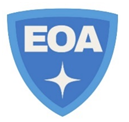OIM course is as per IMO (International Maritime Organisation) Resolution A.1079(28) adopted on 4th Dec 2013. This course is applicable for non propulsion vessel such as Construction, Pipe-lay and Accommodation barges; Semisub and Jackup drilling units etc which use anchor to stay in position.

Prerequisite
1) Four years of service aboard MOUs including at least one year of service as driller, assistant driller, toolpusher, assistant toolpusher, barge
supervisor, mechanical supervisor, electrician, crane operator, ballast control operator or equivalent supervisory position on MOUs.
OR
2) Hold a Bachelor of Science degree from a recognized school of technology and have one year of service as driller, assistant driller, toolpusher, assistant toolpusher, barge supervisor, mechanical supervisor, electrician, crane operator, ballast control operator or equivalent supervisory position on MOUs.
Course Content
1. Stability and construction: OIM
1. The general principles of construction
2. The static and dynamic stability of floating MOUs; theory and factors affecting trim and stability; measures to preserve safe trim and stability, including sufficient knowledge of stability calculations and the use of stability booklets; also the relationship with the regulatory requirements in respect of the stability curves for operating and survival conditions, taking into account the effect of the environmental conditions prevailing;
3. The effect on the trim and stability of a floating MOU in the event of damage to, and consequential flooding of, any compartment; counter-measures to be taken; knowledge of the principle and importance of maintaining the watertight integrity of the MOU; procedures for maintaining watertight integrity;
4. Loading supplies and ballasting in order to keep the unit’s stresses within acceptable limits;
5. Principal structural members and required periodical inspections; basic knowledge of the effects of welding; effects of corrosion on the structure;
6. The effect of the mooring system on stability; and
7. Preloading and leg reaction stresses on self-elevating MOUs;
2. Station-keeping, mooring and dynamic positioning: OIM
1. Seabed composition and characteristics;
2. Behaviour of mooring systems and force distribution, including the effect of environmental conditions;
3. Consequences of failure of the mooring system;
4. Anchor placement and recovery, and working with anchor-handling vessels; and
5. The principles of the dynamic positioning system, including capabilities and limitations of thrusters, power systems and maximum allowable position offsets;
3.Transit operations:
1. The 1972 Collision Regulations, as amended;
2. Navigation and electronic navigational aids appropriate to the type of MOU; and
3. Towing procedures, including recovery of tow;
4.Emergency procedures and safety equipment:
1. Life-saving and firefighting procedures, including drills;
2. Maintenance and inspection of life-saving and firefighting appliances in accordance with the regulatory requirements;
3.Communication procedures in emergencies;
4. Precautions to be taken before the onset of heavy weather;
5. Evacuation procedures; and
6. Crisis management and crowd control;
5.Personnel transfers:
1. Precautions to be taken during transfer of personnel;
2. Use of the personnel basket;
3. Helicopter transfers; and
4. Vessel transfers;
6. Handling and stowage of supplies, including dangerous goods:
1. Safe handling, stowage and care of equipment, supplies and dangerous goods;
2. Cranes and lifting equipment and inspections; and
3. Procedures for loading and discharge of helicopters and supply vessels;
7. Pollution prevention and control:
1. Pollution prevention systems and equipment; and
2. Pollution control procedures;
8. Meteorology:
1. The characteristics of various weather systems;
2. Ability to apply available meteorological information to ensure safety of the MOU and, upon request, supply other vessels or aircraft with information;
3. Sources of meteorological information; and
4. The effects of weather on the environmental limits of the MOU;
9. Safe working practices:
1. Occupational safety, health and hygiene;
2. Hazardous areas;
3. Permits to work;
4. Work over water;
5. Work in enclosed spaces (see resolution A.1050(27);
6. Personnel training;
7. Understanding of organization and communication; and
8. Understanding and inspection of safety equipment;
10. Regulatory and certification requirements, including an appreciation of international and national regulations and recommendations affecting operations; and
OIM
11. Industrial operations as they relate to maritime safety, including appreciation of the interrelationship between marine operations and specific industrial activities, including, where appropriate, the following:
1. Drilling and maintenance, where appropriate, of wells;
2. Construction and offshore maintenance and repair;
3. Production;
4. Accommodation support;
5. Lifting operations;
6. Pipe-laying;
7. Diving; and
8. Firefighting support.
Elite Offshore Academy has been established to provide quality training to the people working in the Offshore, Marine and General Industry (OSHA).
Most of our courses are unique and futuristic in nature that have been designed by experience and are adhering to latest guidelines promulgated by global competent authorities. Although we started with focus on offshore sector, with demand, we have been slowly shifting towards OSHA.
The courses are conducted by trained and qualified faculties who have several years of working experience in the industry. The centre uses latest aids and equipment to impart training.
Elite Offshore is very conveniently located at the kharghar, sector 2, Little World Mall, 1st floor, Unit 123 The centre aims at providing cost effective solution to the ever-increasing training requirement of Offshore, Marine and OSHA Industry.
Training programs may be customized or scheduled to suit specific needs of companies or groups of students.
© 2025 coursetakers.com All Rights Reserved. Terms and Conditions of use | Privacy Policy